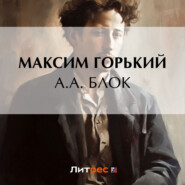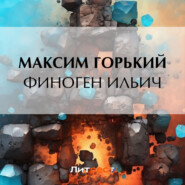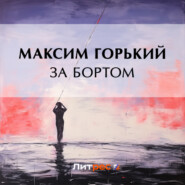По всем вопросам обращайтесь на: info@litportal.ru
(©) 2003-2025.
✖
Mother
Настройки чтения
Размер шрифта
Высота строк
Поля
"Yes, yes, it's simple," said the Little Russian, and added gloomily: "Like life." A few minutes later he said: "I'll go take a walk in the field."
"After the bath? The wind will blow through you," the mother warned.
"Well, I need a good airing."
"Look out, you'll catch a cold," Pavel said affectionately. "You'd better lie down and try to sleep."
"No, I'm going." He put on his wraps, and went out without speaking.
"It's hard for him," the mother sighed.
"You know what?" Pavel observed to her. "It's very good that you started to say 'thou' to him after that."
She looked at him in astonishment, and after reflecting a moment, said:
"Um, I didn't even notice how it came. It came all of itself. He has grown so near to me. I can't tell you in words just how I feel. Oh, such a misfortune!"
"You have a good heart, mamma," Pavel said softly.
"I'm very glad if I have. If I could only help you in some way, all of you. If I only could!"
"Don't fear, you will."
She laughed softly:
"I can't help fearing; that's exactly what I can't help. But thank you for the good word, my dear son."
"All right, mother; don't let's talk about it any more. Know that I love you; and I thank you most heartily."
She walked into the kitchen in order not to annoy him with her tears.
CHAPTER XVIII
Several days later Vyesovshchikov came in, as shabby, untidy, and disgruntled as ever.
"Haven't you heard who killed Isay?" He stopped in his clumsy pacing of the room to turn to Pavel.
"No!" Pavel answered briefly.
"There you got a man who wasn't squeamish about the job! And I'd always been preparing to do it myself. It was my job – just the thing for me!"
"Don't talk nonsense, Nikolay," Pavel said in a friendly manner.
"Now, really, what's the matter with you?" interposed the mother kindly. "You have a soft heart, and yet you keep barking like a vicious dog. What do you go on that way for?"
At this moment she was actually pleased to see Nikolay. Even his pockmarked face looked more agreeable to her. She pitied him as never before.
"Well, I'm not fit for anything but jobs like that!" said Nikolay dully, shrugging his shoulders. "I keep thinking, and thinking where my place in the world is. There is no place for me! The people require to be spoken to, and I cannot. I see everything; I feel all the people's wrongs; but I cannot express myself: I have a dumb soul." He went over to Pavel with drooping head; and scraping his fingers on the table, he said plaintively, and so unlike himself, childishly, sadly: "Give me some hard work to do, comrade. I can't live this life any longer. It's so senseless, so useless. You are all working in the movement, and I see that it is growing, and I'm outside of it all. I haul boards and beams. Is it possible to live for the sake of hauling timber? Give me some hard work."
Pavel clasped his hand, pulling him toward himself.
"We will!"
From behind the curtains resounded the Little Russian's voice:
"Nikolay, I'll teach you typesetting, and you'll work as a compositor for us. Yes?"
Nikolay went over to him and said:
"If you'll teach me that, I'll give you my knife."
"To the devil with your knife!" exclaimed the Little Russian and burst out laughing.
"It's a good knife," Nikolay insisted. Pavel laughed, too.
Vyesovshchikov stopped in the middle of the room and asked:
"Are you laughing at me?"
"Of course," replied the Little Russian, jumping out of bed. "I'll tell you what! Let's take a walk in the fields! The night is fine; there's bright moonshine. Let's go!"
"All right," said Pavel.
"And I'll go with you, too!" declared Nikolay. "I like to hear you laugh, Little Russian."
"And I like to hear you promise presents," answered the Little Russian, smiling.
While Andrey was dressing in the kitchen, the mother scolded him:
"Dress warmer! You'll get sick." And when they all had left, she watched them through the window; then looked at the ikon, and said softly: "God help them!"
She turned off the lamp and began to pray alone in the moonlit room.
The days flew by in such rapid succession that the mother could not give much thought to the first of May. Only at night, when, exhausted by the noise and the exciting bustle of the day, she went to bed, tired and worn out, her heart would begin to ache.
"Oh, dear, if it would only be over soon!"
At dawn, when the factory whistle blew, the son and the Little Russian, after hastily drinking tea and snatching a bite, would go, leaving a dozen or so small commissions for the mother. The whole day long she would move around like a squirrel in a wheel, cook dinner, and boil lilac-colored gelatin and glue for the proclamations. Some people would come, leave notes with her to deliver to Pavel, and disappear, infecting her with their excitement.
The leaflets appealing to the working people to celebrate the first of May flooded the village and the factory. Every night they were posted on the fences, even on the doors of the police station; and every day they were found in the factory. In the mornings the police would go around, swearing, tearing down and scraping off the lilac-covered bills from the fences. At noon, however, these bills would fly over the streets again, rolling to the feet of the passers-by. Spies were sent from the city to stand at the street corners and carefully scan the working people on their gay passages from and to the factory at dinner time. Everybody was pleased to see the impotence of the police, and even the elder workingmen would smile at one another:
"Things are happening, aren't they?"
All over, people would cluster into groups hotly discussing the stirring appeals. Life was at boiling point. This spring it held more of interest to everybody, it brought forth something new to all; for some it was a good excuse to excite themselves – they could pour out their malicious oaths on the agitators; to others, it brought perplexed anxiety as well as hope; to others again, the minority, an acute delight in the consciousness of being the power that set the village astir.
Pavel and Andrey scarcely ever went to bed. They came home just before the morning whistle sounded, tired, hoarse, and pale. The mother knew that they held meetings in the woods and the marsh; that squads of mounted police galloped around the village, that spies were crawling all over, holding up and searching single workingmen, dispersing groups, and sometimes making an arrest. She understood that her son and Andrey might be arrested any night. Sometimes she thought that this would be the best thing for them.
Strangely enough, the investigation of the murder of Isay, the record clerk, suddenly ceased. For two days the local police questioned the people in regard to the matter, examining about ten men or so, and finally lost interest in the affair.

















